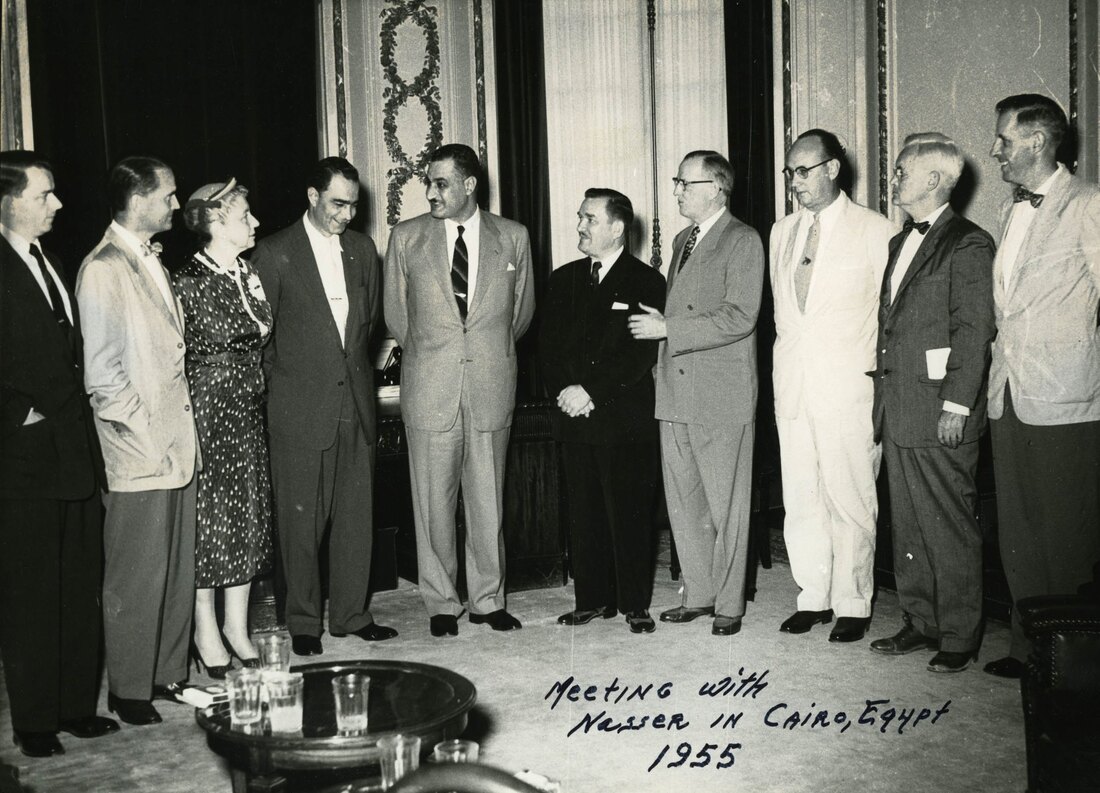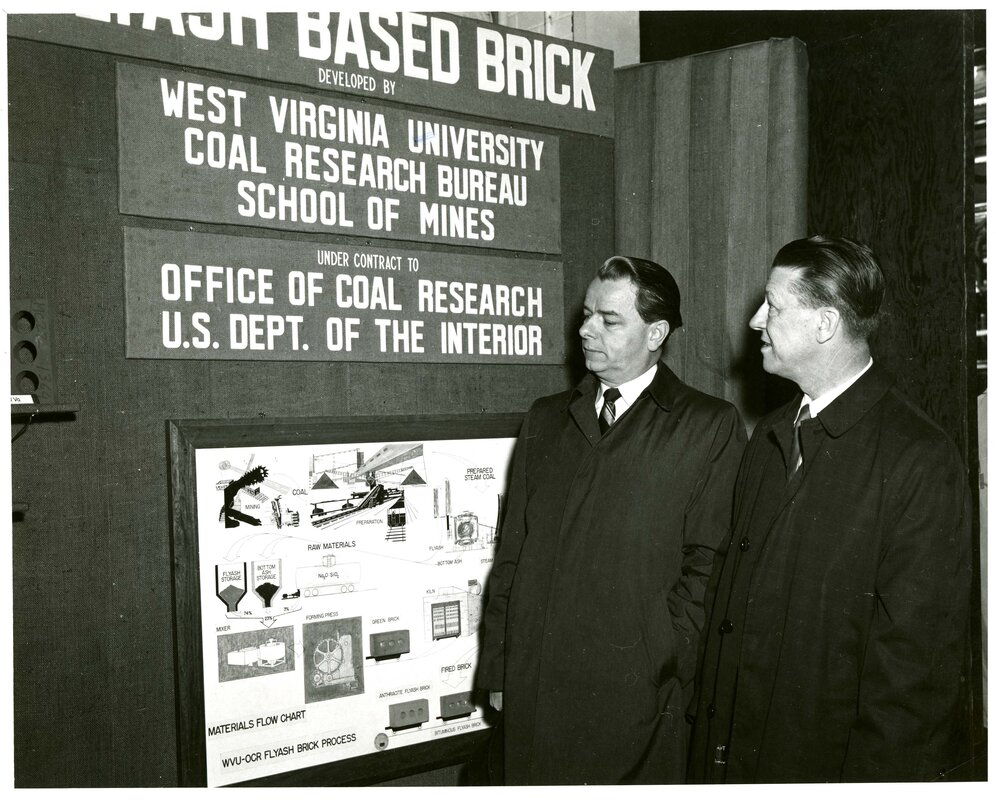|
By Erik Minyard, Byrd Center Student Intern In 1970, an energy crisis hit America; this was no surprise to Senator Robert C. Byrd who foresaw and made several attempts to prevent the crisis. Byrd made several attempts to warn of the problems that we could face supplying most of our energy needs on foreign oil, but oil was abundant for import and it could be used to power almost anything the American people needed. The crisis hit as developing tensions in the Middle East and U.S.- Arab relations led to the embargo of oil trade with the United States. Senator Byrd went on a tour of Europe and the Middle East in the 1950s. While he was visiting the Arab States, he noticed that many of them were making arms deals with the Soviet Union for weapons. When Senator Byrd asked about the arms deals with the Russians, Egyptian leader Gamal Abdel Nasser claimed that it was for their own protection. “Colonel Nasser in Egypt insisted that arms from the Soviets did not mean that his country would become subservient to the Russians, but Egyptians desire for arms was motivated by the desire for protection against Israel.” This was one of the many rising tensions in the Middle East, problems which stemmed from the creation of the Israeli state and rise in wealth from oil extraction and trading. Many of the Arab States felt that their land and holy sites had been unjustly taken from them which fueled openly hostile relations towards Israel and any country that supported them. Due to rising tensions, Senator Byrd urged the U.S. Senate to place a tariff on the import of oil and to switch its main source of power from oil to coal. Senator Byrd felt that if the U.S. kept relying heavily on oil that it would cause an energy crisis as political problems continued to mount in the Middle East. The United States was one of the supporters for the creation and protection of Israel. In an attempt to sway countries from supporting Israel, Arab nations unified in the creation of the Organization of the Petroleum Exporting Countries (OPEC) with the goal of leveraging greater power in trade negotiations. Continued American support for Israel after the Six Day and Yom Kippur Wars led OPEC to call for an embargo on oil exported to the United States in 1973. Just as Senator Byrd had predicted, the embargo led to a spike in prices and shortages of oil across the United States. In the years leading up to the energy crisis, Senator Byrd worked to diversify the uses of coal in an attempt to strengthen its domestic market opportunities and to support the ailing industry which had long been the economic mainstay of West Virginia. He worked through the Senate Appropriations Committees to secure funding for the establishment of “Project Bootstrap” to study and create new sources of power that would replace oil. If technology could develop more efficient uses of coal for energy, the market could be further expanded by other uses of the material which was still considered to be abundant in West Virginia and other coalfields across the country. The idea of turning coal into gasoline was a key objective of Project Bootstrap and a test plant was created in Morgantown, West Virginia to develop this concept. Project Bootstrap funded research into new and innovative uses for coal, including its use as an insulation material, brick production, and as an agent to increase decomposition in landfills. Though Senator Byrd's attempts to regain coal’s preeminent place in the U.S. energy market failed, he did not stop trying to persuade the public that our dependence on foreign imported oil was potentially dangerous to our economy. In a Byrd’s-Eye View column in 1970, Byrd wrote that “The energy shortage in America can only get worse if action is not taken immediately to insure an always sufficient supply of fuel to run power plants.” The shortage of oil caused problems for all people and could lead to unrest among the public if it were to continue. Senator Byrd also attested to his belief that coal was still a viable source for power, stating “it is of the utmost importance that the government undertake intensified research on natural fuels for energy production.” An increased use of coal would not only provide much-needed economic relief and jobs to his home state, but it would better prepare the United States to avoid future energy shortages.
Senator Byrd's fight for coal's reemergence in the energy market and his case for the economic security it could bring met with opposition from scientists and environmental researchers who argued that the extraction of coal caused increased air and water pollution. In time, these consequences of the use of coal hastened the industry's demise as companies began to look for cleaner sources of energy that had less environmental impact. Regulations on emissions from coal-fired electricity generation plants further decreased coal's position in the energy market. Late in his life, Senator Byrd acknowledged the need for renewable energy, employing a similar argument to that of the 1960s, painting the need for American energy independence as key for economic stability. Sources: History.com Editors. “Yom Kippur War,” November 9, 2009. https://www.history.com/topics/middle-east/yom-kippur-war. “Energy Crisis.” National Museum of American History, January 10, 2017. https://americanhistory.si.edu/american-enterprise-exhibition/consumer-era/energy-crisis. History.com Editors. “Energy Crisis (1970s).” History.com. A&E Television Networks, August 30, 2010. https://www.history.com/topics/1970s/energy-crisis.
0 Comments
Leave a Reply. |
Archives |
Our Mission: |
The Byrd Center advances representative democracy by promoting a better understanding of the United States Congress and the Constitution through programs and research that engage citizens.
|
Copyright © Robert C. Byrd Center for Congressional History and Education
|




